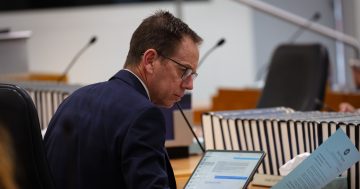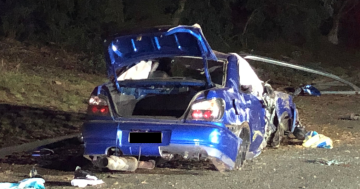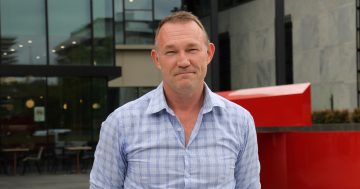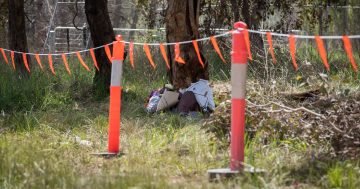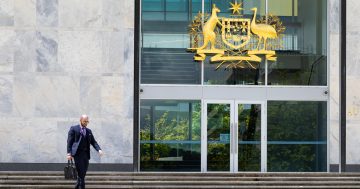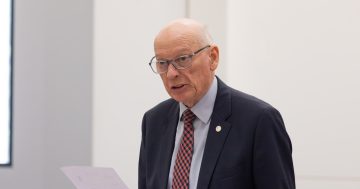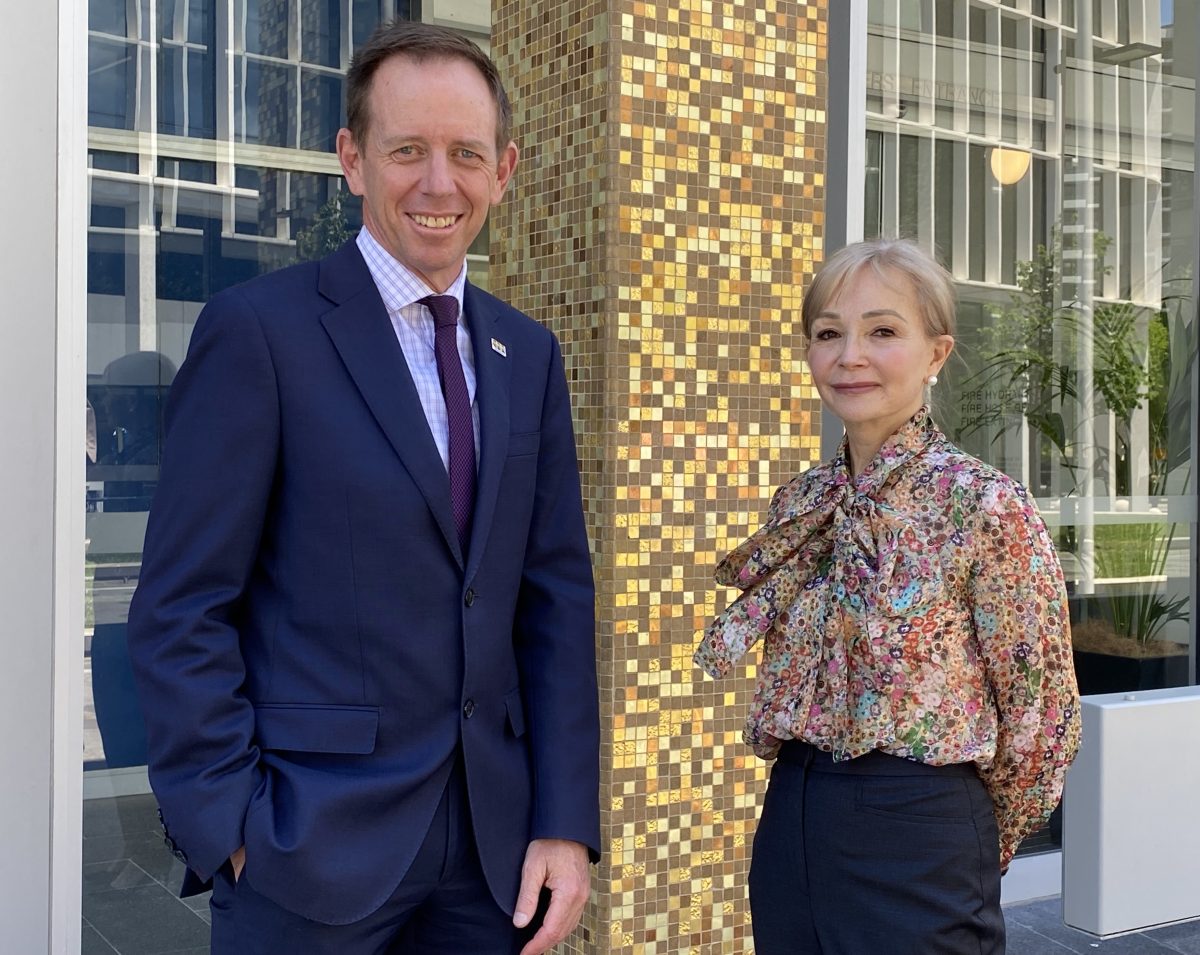
Attorney-General Shane Rattenbury with former ACT magistrate Lisbeth Campbell, who will head up the Law Reform and Sentencing Advisory Council. Photo: Claire Fenwicke.
Examining the ACT’s bail system and dangerous driving sentences have been flagged as the first items on the agenda of the Law Reform and Sentencing Advisory Council (LRSAC).
Membership of the body has finally been announced, and former magistrate Beth Campbell has been chosen as its chair.
The LRSAC was initially announced in October last year with calls for a review of the ACT’s judicial system, especially around dangerous driving punishments and bail.
Its formation was delayed due to a failed procurement process, with the terms of reference for the body announced in July.
Now the government has signalled it will refer the bail system and sentencing of dangerous driving offences for the council’s consideration.
“These have both been areas of public discourse, and I think that is exactly why we want this body to look at these sorts of questions and consider them carefully and give us advice,” Attorney-General Shane Rattenbury said.
“I’ve long wanted to look at the bail system, but I’ve wanted to do it in a systemic and considered way, and that has certainly been one of the key reasons for establishing this advisory group.”
The terms of reference for both these referrals are still being finalised.
Mr Rattenbury has previously expressed his dismay that the previous law reform council had been disbanded and welcomed including sentencing practices as part of the new council’s scope, particularly given recent public commentary around the bail system and punishments for recidivist and dangerous drivers.
“For my mind, this body can play a really important role in distilling difficult questions,” he said.
“We’ve seen that public debate playing out. I think this is a way to work through some of these issues … this provides another avenue to tackle some of these tricky questions.
“By working collaboratively, the council will make informed recommendations to government for systemic improvements on issues that matter to Canberrans.”
The Attorney-General will handle referrals to the council; however, the public can also make submissions to the council.
Mrs Campbell retired as a magistrate earlier this year but had expressed her interest in being involved with the council.
She said she was delighted to be able to continue in the justice system, which she has been part of for 25 years.
“It turns out that I do miss the work and I quite like being involved … I’m not quite ready to hang up my bootstraps just yet,” Mrs Campbell said.
“It’s my hope that, by building a reputation for timeliness and expertise as well as for its commitment to impartiality and objectivity, the council can establish itself as a respected source of advice on law reform in the ACT.”
The council will first meet on 11 December, but Mrs Campbell has already been researching the background to the two referrals, with in-depth work expected to start next year.
She said while the council won’t be able to come to a solution that would please everybody in the community for either issue, she came to the role with no fixed thoughts or position.
“It’s a little bit daunting as the referrals are not ones that are going to be easy to deal with, and no matter what outcomes or recommendations we come up with, there’s always going to be some members of the community who feel either I’ve sold out the system or want me to come up with unrealistic outcomes,” Mrs Campbell said.
Dates are being discussed for potential public hearings and submissions on each matter.
While it’s expected those will be the only two issues focused on by the council next year, Mrs Campbell said she looked forward to the council feeling comfortable enough to suggest their own areas to research.
“Our decisions and recommendations will be grounded in a thorough and unbiased evaluation of the pertinent issues based on sound evidence and analysis,” she said.
“It’s important to emphasise that our work will be uninfluenced by political or extraneous considerations and, in my case, by any immutable predetermined views.”
The other members of the council from the public recruitment process are:
- Dr John Boersig, Legal Aid ACT CEO (legal assistance sector member)
- Joanne Chivers (First Nations community member)
- Dr Janet Hope, University of Canberra (academic member)
- Nadine Miles, Aboriginal Legal Service (juvenile justice member)
- Shobha Varkey (community member)
- Heidi Yates, Victims of Crime Commissioner (victims of crimes advocacy member).
Stakeholders in the justice space will also have representatives on the council.
These people are:
- Bruno Aloisi, Acting ACT Corrective Services Commissioner
- Tim Dingwall, ACT Law Society representative
- Neil Gaughan, ACT Chief Police Officer
- Keegan Lee, ACT Bar Association representative
- Dr Penelope Mathew, President of the ACT Human Rights Commission
- Anthony Williamson SC, Acting ACT Director of Public Prosecutions.












